Do We Need Another Wonder?
My second cell phone was the Nokia 3310 I had as a work phone. I can remember my boss throwing his out the window of a moving vehicle—at 50mph (80km/h)—only to stop the car, walk back, pick it up, and continue his call. That thing was a brick house. Unassailable. Beautiful in its time. If not for the ease of texting on a smartphone, I would happily use that old tank til the day I die.
Unfortunately, we live in a world of planned obsolescence. We may hold on to fond memories of the past, but the little bits of life we enjoy are made to be left behind by the next big thing.
Even board games suffer this cruel fate. Games are redesigned and reimplemented. Every new quirk and twist injects life into the old while inevitably sacrificing some beloved and belovedly miniscule feature that took up camp in our hearts. Sometimes the redesign is a success. At other times, not so much.
There is a third road, though—one seldom, if ever, traveled in the realm of digital technology. This road allows for the reimplementation to walk alongside its predecessor in peace and harmony. I may still have all of my old mobile phones, but that’s only because I’m too lazy to recycle them and too conscientious to throw them away. One cannot live while the other survives. Not so in board games.
The key to relative cardboard peace is finding that delicate balance between maintaining the spirit of the old while introducing features new enough to warrant holding both. It seems impossible. And yet, I believe it’s possible. I believe it because I’ve seen it.
7 Wonders: Architects is the latest title in the Wonder-verse. Crafted from the inexhaustible imagination of Antoine Bauza (Draftosaurus, Takenoko), Architects builds on his 2010 epic, 7 Wonders. Despite the 2015 two-player redesign, 7 Wonders: Duel, and the recent reprint of the original (now that’s where planned obsolescence rears its ugly head, but now is not the time), Bauza went back to the drawing board to pull together yet another iteration of the ancient world.
Enter the Wonder-verse
7 Wonders: Architects is a breeze to bring to the table. The box contains seven individually sealed containers, one for each of the Wonders available. Each box holds a deck of cards with a handy plastic holder and a set of five two sided cardboard puzzle pieces. One side depicts the Wonder under construction, the other side the completed masterpiece. Each player receives one such contained Wonder, placing the face-up deck between themselves and the player to their left and building the Wonder on its unfinished side.
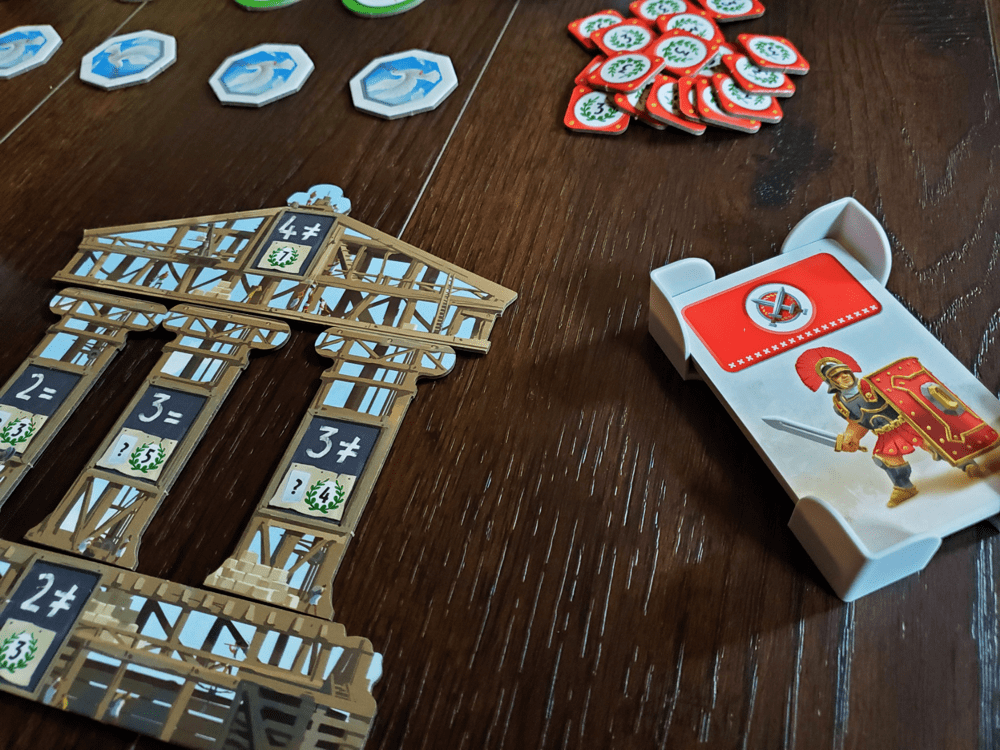
The center of the table holds the shared elements of play. A deck of cards is shuffled face-down. The stack of Scientific Progress reward tokens is shuffled and three are dealt face-up. According to the player count, a number of two-sided Conflict tokens are laid on their peace-loving side. Finally, a stack of Military victory tokens round out the common area.
The cards in the game all feature the same symbology and colors found in 7 Wonders, only with a more playful illustration style. On each turn, players select a card from either the two face-up decks on either side or the face-down deck in the center. The card is placed face-up in front of them. If the particular set is then complete, players must trade in the cards for its reward.
The Wonder is built from the ground up by collecting sets of like or non-like Building Materials. As each piece of the Wonder is flipped, the completed structure takes shape revealing points and one-off abilities unique to the masterpiece. The temple of Artemis in Ephesus twice grants the ability to select an extra card from the center deck, while the lighthouse from Alexandria grants the ability to select a card from any deck on the table. Giza’s pyramid sections are simply worth more Victory points, the Colossus of Rhodes holds extra military strength. The abilities are varied and can be leveraged differently toward total victory.
Yellow cards bear gold tokens that serve as wild Building Materials. These shiny buggers disappear fast!
Green Science cards are collected either in pairs or in sets of three unique symbols to collect Progress tokens from the center. These tokens either bolster endgame scoring or grant in-game powers. One might allow an extra card when a specific type of card is taken. Another allows the player to disregard the Building Material conditions in constructing the Wonder.
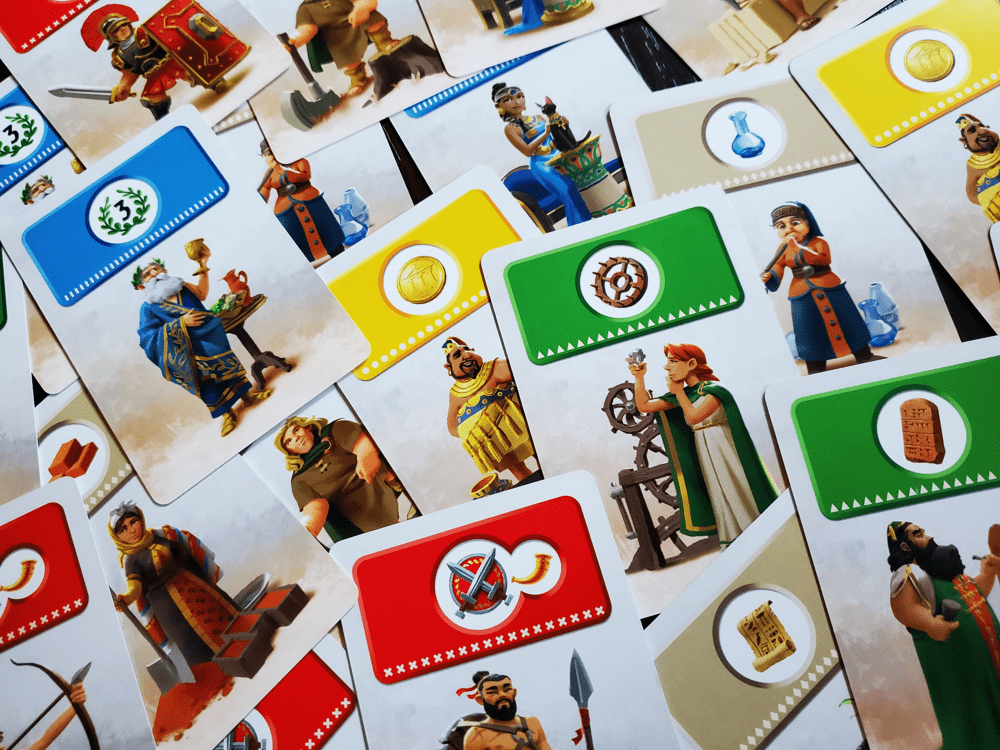
Blue cards earn straight Victory points and may bring the blessing of the Cat. The player with the Cat pawn is able, at the beginning of their turn, to peek at the face-down center card before deciding which card to draw—a significant perk! Combine that advantage with the two-point endgame bonus that also accompanies the Cat, and this little feline remains a hot commodity throughout the game.
Finally, red cards indicate Military strength. Every Military card holds a shield, and the number of shields determines victory when war breaks out. Some Military cards also feature a horn or two. For each horn that is collected, players flip one Conflict token from its peaceful side to the less friendly battle side. When every token shows its battle side, war breaks out and players earn tokens based on their comparative Military strength. After the battle, any card bearing a horn is discarded, while the shields without horns are retained for future battles. A lovely balancing mechanic!
When one player finishes their Wonder, the game ends. Scores consist of Wonder points, blue Victory cards, Science token rewards, Military rewards, and that darn Cat.
The Real Wonder
7 Wonders: Architects is the simplified little cousin of the original. In place of drafting from a hand of cards, players select from a few neighboring decks. In place of ongoing collections, cards are constantly acquired, revealed, and traded for rewards. In place of timed military conflict, players push each other to the brink of war over and again. And through it all, the puzzly Wonders come to life in view of all.
I love it.

Now, to be fair, I love the original 7 Wonders. It is one of the rare games that can entertain seven as easily as three—so long as the table can withstand the weight of endless hordes of cards. I love 7 Wonders: Duel and its streamlined head-to-head mechanics. I’m predisposed to enjoy this title, and I believe it carves out yet another niche for the Wonder-verse. That niche is speed. Architects is a game that can easily be played back-to-back in less time than the original.
But the introduction of speed does not detract from the beautiful decision-making. Instead, they make every decision interesting and purposeful. The Progress tokens and the Wonder powers escalate play and serve as harbingers of the end. The ever-flipping Conflict tokens create a delicious tension as players brace themselves for war. And whereas a player cannot often win the original 7 Wonders with an exclusively Military bent, Architects unleashes the bullies to earn a pretty penny from Conflict.
The gameplay reminds me of Victorian Masterminds, another Bauza title (with Eric Lang), that involves a race to build a cardboard construction. The supreme strategy, both there and here, seems to be to lead the race toward the completion of the Wonder, but only to finish when you feel assured of victory. That final piece of the Wonder is worth a healthy bonus, and only one player will receive it. Dancing near the finish line, a player can then grab a handful of blue Victory cards, Progress tokens, or maybe the cat before tiptoe-ing to decisive domination.
The illustrations for Architects are obviously more playful and welcoming to the youngest gamers–my four-year-old can play. In fact, she won a game because of her obsessive infatuation with the Cat. She regularly shouts, “Let’s play Seven of the Wonders!” But at the same time, I’ve played with a table full of adults or family and we’ve had just as much fun.
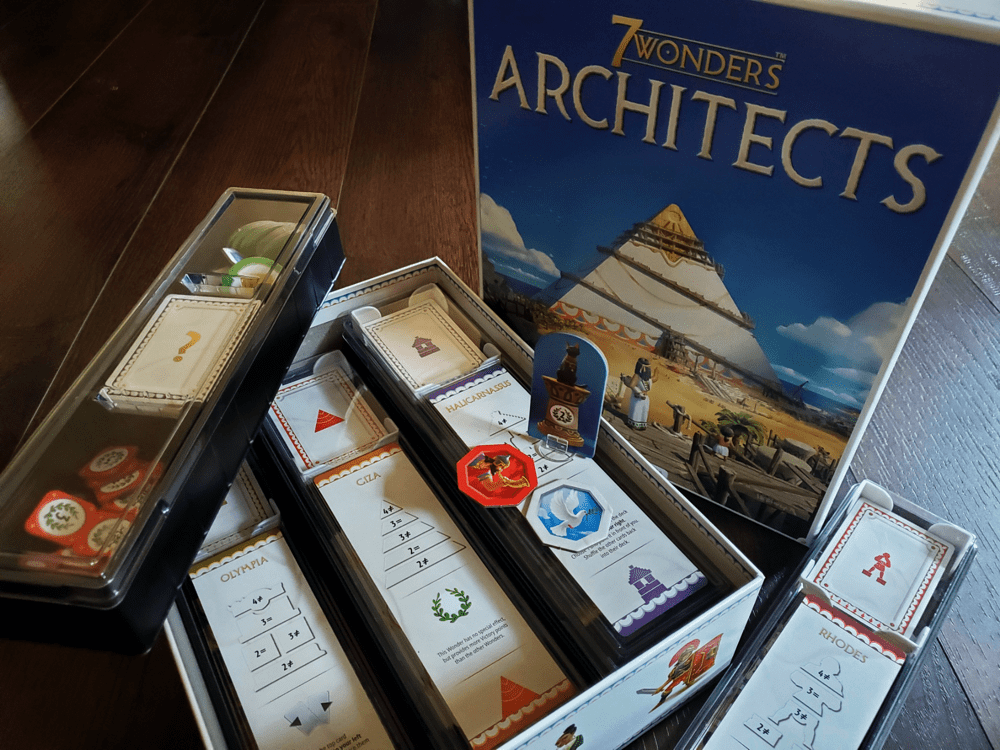
My high view of the game was cemented when my son sat ready to claim victory in a seven-player affair on his next turn, provided no horns were turned. He sat in agony, whispering “No military, no military, no military.” When my daughter flipped a Military card from the center deck, the table erupted and we went to war and he met his demise. We talked about it for the rest of the night. I’ll happily welcome to my collection any game that can produce such a memory.
I have a hard time ranking the various 7 Wonders titles, but the desire to do so is a testimony to the strength of the collection. I commend Antoine Bauza for building multiple titles that don’t render one another obsolete. They speak of ranking rather than replacing (again, aside from that whole reprinting business). For the player who loves the Wonder-verse, there is a game for every social setting that captures a unique aspect of the experience without feeling redundant.
7 Wonders: Architects gives me (admittedly false) hope that there might be a place in the future for that old Nokia after all.


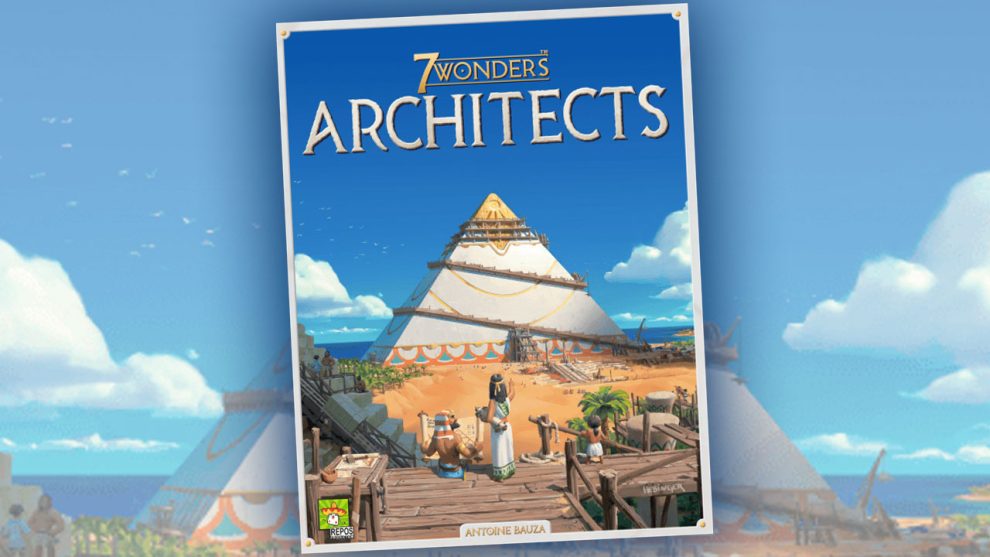



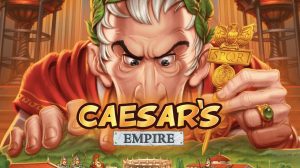





Add Comment